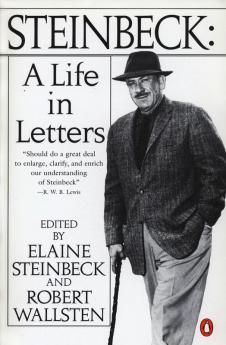This Book is Out of Stock!
Paperback
₹2199
₹2450
10.24% OFF
(All inclusive*)
Delivery Options
*COD & Shipping Charges may apply on certain items.
Review final details at checkout.
Looking to place a bulk order? SUBMIT DETAILS
About The Book
Description
Author
Surely his most interesting plausibly his most memorable and . . . arguably his best book —<b>The New York Times Book Review</b><p>For John Steinbeck who hated the telephone letter-writing was a preparation for work and a natural way for him to communicate his thoughts on people he liked and hated; on marriage women and children; on the condition of the world; and on his progress in learning his craft. Opening with letters written during Steinbeck's early years in California and closing with a 1968 note written in Sag Herbor New York <b>Steinbeck: A Life in Letters</b> reveals the inner thoughts and rough character of this American author as nothing else has and as nothing else ever will.<p>The reader will discover as much about the making of a writer and the creative process as he will about Steinbeck. And that's a lot. —<b>Los Angeles Herald-Examiner</b><p>A rewarding book of enduring interest this becomes a major part of the Steinbeck canon. —<b>The Wall Street Journal</b></p></p></p>
*COD & Shipping Charges may apply on certain items.
Review final details at checkout.
₹2199
₹2450
10% OFF
Paperback
Out Of Stock
All inclusive*
Details
ISBN 13
9780140042887
Publication Date
-01-04-1989
Pages
-928
Weight
-641 grams
Dimensions
-132x197x54.89 mm
Imprint
-Penguin Books








